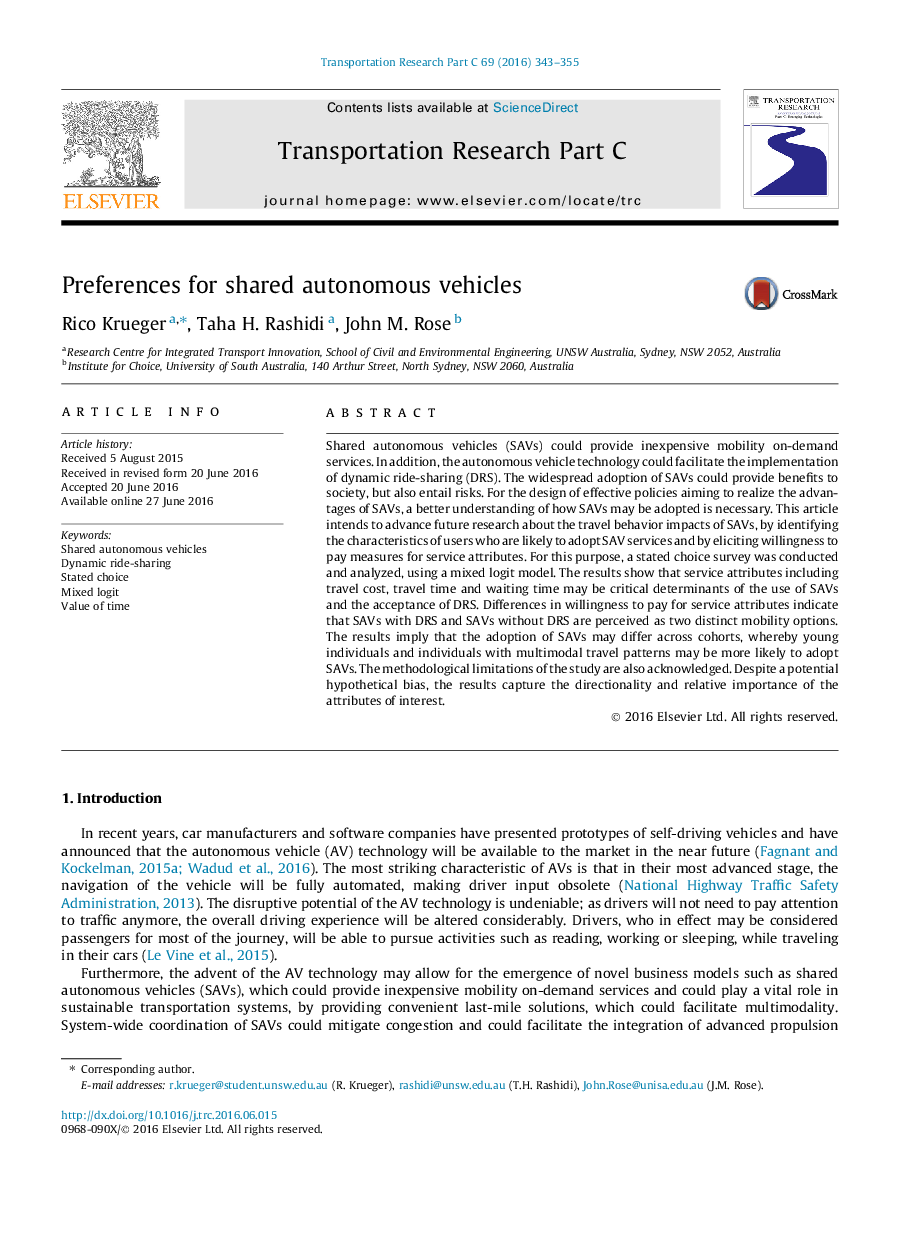| Article ID | Journal | Published Year | Pages | File Type |
|---|---|---|---|---|
| 524735 | Transportation Research Part C: Emerging Technologies | 2016 | 13 Pages |
•Service attributes may affect use of shared autonomous vehicles.•Service attributes may influence the acceptance of dynamic ride-sharing.•Acceptance of dynamic ride-sharing may be linked to higher-order orientations.•Multimodality increases the propensity of choosing shared autonomous vehicles.
Shared autonomous vehicles (SAVs) could provide inexpensive mobility on-demand services. In addition, the autonomous vehicle technology could facilitate the implementation of dynamic ride-sharing (DRS). The widespread adoption of SAVs could provide benefits to society, but also entail risks. For the design of effective policies aiming to realize the advantages of SAVs, a better understanding of how SAVs may be adopted is necessary. This article intends to advance future research about the travel behavior impacts of SAVs, by identifying the characteristics of users who are likely to adopt SAV services and by eliciting willingness to pay measures for service attributes. For this purpose, a stated choice survey was conducted and analyzed, using a mixed logit model. The results show that service attributes including travel cost, travel time and waiting time may be critical determinants of the use of SAVs and the acceptance of DRS. Differences in willingness to pay for service attributes indicate that SAVs with DRS and SAVs without DRS are perceived as two distinct mobility options. The results imply that the adoption of SAVs may differ across cohorts, whereby young individuals and individuals with multimodal travel patterns may be more likely to adopt SAVs. The methodological limitations of the study are also acknowledged. Despite a potential hypothetical bias, the results capture the directionality and relative importance of the attributes of interest.
